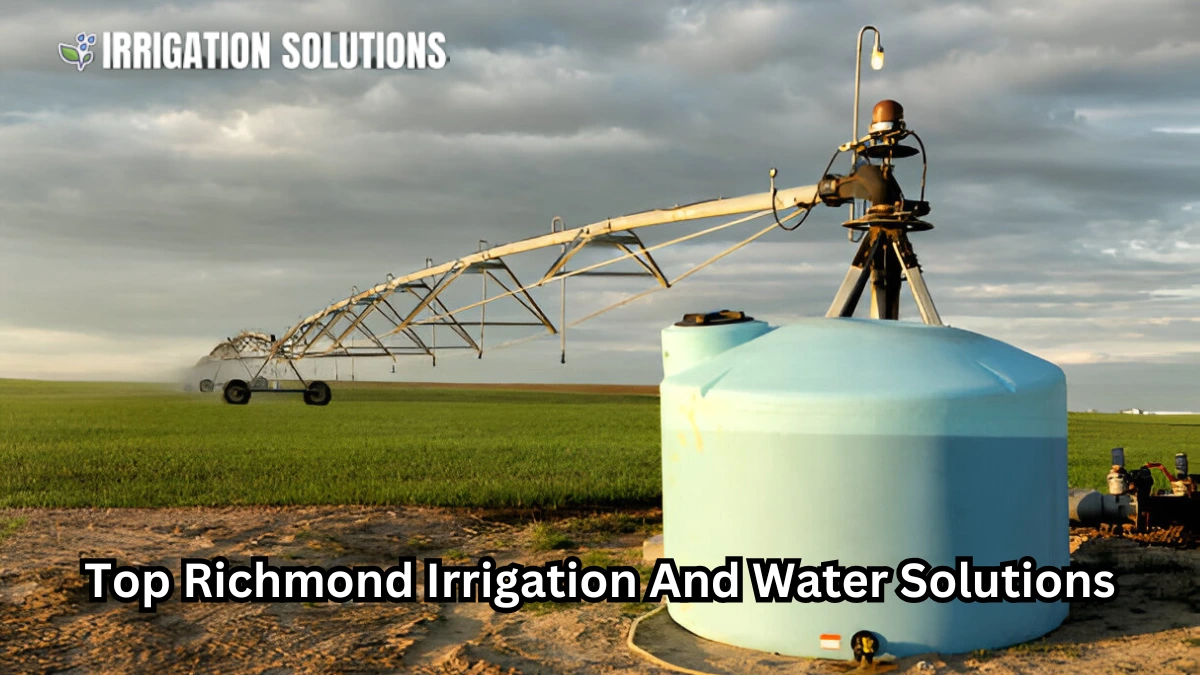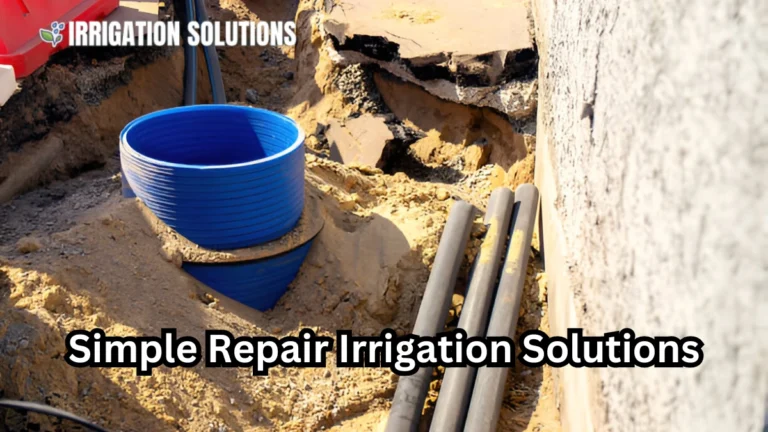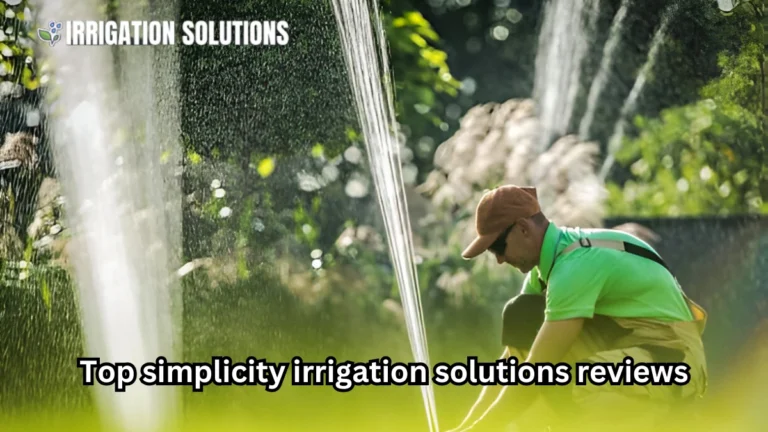top richmond irrigation and water solutions

Effective water management is essential for both residential and commercial landscapes. In Richmond, as in many other areas, the demand for efficient irrigation and water solutions has skyrocketed, driven by the need to conserve resources and improve landscape health. Whether you’re looking to install a new system, upgrade an old one, or simply understand the basics of irrigation, this guide covers everything you need to know about Richmond irrigation and water solutions.
Why Irrigation Systems Matter in Richmond
Richmond is home to a variety of landscapes, from lush green gardens to arid, water scarce areas. Proper irrigation not only ensures that your plants thrive but also helps conserve water a valuable resource, especially during dry seasons. Here are some key reasons why having an efficient irrigation system is crucial:
- Water Conservation: Traditional watering methods, such as using a hose, can result in overwatering or inefficient water usage. Irrigation systems allow for controlled, targeted watering that reduces waste.
- Cost Savings: A well-designed irrigation system can help lower water bills by ensuring that you’re using only the amount of water necessary to keep your landscape healthy.
- Time Efficiency: Automated irrigation systems take the hassle out of watering. You can set it up and let it run while you focus on other tasks.
- Better Plant Health: Irrigation systems can be designed to deliver water directly to the roots of your plants, which is more efficient and healthier for your landscape.
Types of richmond irrigation and water solutions
There are several types of irrigation systems, each suited for different types of landscapes and needs. Understanding which one works best for your property is essential for achieving optimal results.
Drip Irrigation Systems
Drip irrigation is a low-pressure system that delivers water directly to the roots of plants through a network of tubing and emitters. It’s one of the most efficient systems, ideal for gardens, flower beds, and vegetable patches.
- Advantages:
- Reduces water wastage by focusing water where it’s needed.
- Low maintenance and energy efficient.
- Ideal for areas with poor water availability.
- When to Use:
- Small to medium sized gardens.
- Areas with drought resistant plants.
- When you need to conserve water.
Sprinkler Systems
Sprinklers are widely used for lawns and large garden areas. They can cover larger areas, ensuring even distribution of water.
- Advantages:
- Flexible and can cover large areas.
- Ideal for lawns and large, open spaces.
- Some models allow for programmable schedules.
- When to Use:
- Large residential lawns.
- Commercial properties with expansive landscapes.
- Areas that need an even, broad water distribution.
Soaker Hoses
Soaker hoses are similar to drip irrigation but typically more cost effective. The hose is laid along the soil and slowly releases water, soaking the ground evenly.
- Advantages:
- Budget friendly.
- Easy to install and maintain.
- Suitable for garden beds, vegetable patches, and flower gardens.
- When to Use:
- Small to medium sized garden beds.
- For areas where water distribution is relatively even.
Key Components of an Irrigation System
Regardless of which irrigation system you choose, understanding the key components of a typical irrigation setup is crucial. Below are the major parts that make up a system:
Controllers
The controller, or timer, regulates when and for how long your irrigation system operates. Many modern controllers have smart features that allow you to control your system via an app on your smartphone.
Valves
Valves control the flow of water through the pipes. Depending on the system, they may be placed at various points to ensure that water reaches the desired areas.
Pipes and Tubing
Water is delivered to different parts of the landscape through pipes or tubing. These materials are designed to carry water efficiently without leaks.
Emitters and Sprinklers
Emitters are used in drip irrigation to deliver water directly to the roots. Sprinklers are used in other systems to spray water across lawns and gardens. These can be adjusted to deliver varying amounts of water based on the needs of the plants.
Filters
Filters are essential for keeping the system free of debris, which can clog emitters and valves. Regular maintenance of the filter is required to ensure smooth operation.
Pressure Regulators
Pressure regulators are used to maintain optimal water pressure throughout the system. Too high or too low a pressure can damage the irrigation system or make it inefficient.
Benefits of Professional Irrigation System Installation
While DIY irrigation systems are available, professional installation offers several benefits that can enhance your system’s performance and longevity.
Expertise and Experience
Professional installers have the expertise to design and implement a system that fits your property’s unique needs. They can assess your landscape, soil type, and climate conditions to recommend the best irrigation solution.
Proper Sizing
A professional will ensure that the system is properly sized, meaning you won’t end up wasting water or energy. For example, too few sprinklers can lead to dry spots, while too many can result in oversaturation.
Maintenance and Support
Many professional services offer ongoing maintenance, including repairs, adjustments, and troubleshooting. They can also offer advice on how to best maintain the system to keep it running efficiently.
Common Irrigation Problems and How to Fix Them
Even the most well-designed irrigation systems can face problems over time. Below are some of the most common issues and their solutions.
Clogged Emitters
Clogged emitters can reduce water flow, leading to uneven watering. Clean your emitters regularly to avoid blockages. Consider installing filters to prevent debris from entering the system.
Leaky Pipes
Pipes can develop leaks over time, leading to water wastage and inefficient watering. Inspect your pipes periodically and replace damaged sections.
Uneven Watering
If some areas of your landscape are getting too much water while others are too dry, you may need to adjust the placement of your sprinklers or emitters. Ensure that the water coverage is even.
Pressure Issues
Fluctuations in water pressure can affect the performance of your irrigation system. If the pressure is too high or too low, consider installing a pressure regulator or adjusting the system to match your local water pressure.
Sustainable Water Solutions for Richmond Landscapes
Sustainability is a major concern for many homeowners in Richmond, and efficient irrigation plays a key role in achieving sustainable landscaping. Below are some sustainable water practices that can be integrated with your irrigation system.
Rainwater Harvesting
Rainwater harvesting is the process of collecting rainwater from rooftops and other surfaces. This water can be stored and used for irrigation, reducing your reliance on municipal water systems.
- Benefits:
- Reduces water costs.
- Helps conserve valuable resources.
- Provides a backup water source during dry spells.
Smart Irrigation Systems
Smart irrigation systems use weather data to adjust watering schedules. These systems can detect when it’s raining and skip watering sessions, preventing overwatering.
- Benefits:
- Automatic adjustments based on weather conditions.
- More efficient water usage.
- Lower water bills.
Drought Tolerant Landscaping
Planting drought-tolerant plants can reduce the need for regular irrigation. Native plants, in particular, are well suited for the local climate and can thrive with minimal water.
- Examples:
- Lavender, succulents, and grasses.
- Xeriscaping techniques for water efficient landscaping.
Richmond’s Climate and Its Impact on Irrigation Needs
Understanding the local climate is essential for designing an effective irrigation system. Richmond’s climate varies, with hot, dry summers and mild winters. During the summer months, water conservation becomes particularly important, especially for lawns and gardens that require consistent watering to thrive.
How Richmond’s Climate Affects Irrigation
- Hot Summers: During the summer, the area can experience drought conditions, making it crucial to minimize water wastage.
- Mild Winters: While winters are typically mild, the dry season can still require supplemental watering for gardens and plants.
Customizing Your Irrigation System for Richmond
To account for the climate, choose an irrigation system that efficiently delivers water based on seasonal demands. A drip irrigation system, paired with a smart controller, can help manage water usage effectively throughout the year.
Conclusion
Richmond irrigation and water solutions are essential for maintaining healthy, sustainable landscapes while conserving water. Whether you opt for a drip irrigation system, a sprinkler setup, or another type, understanding how to use and maintain these systems can save you time, money, and resources. By integrating modern solutions like rainwater harvesting and smart controllers, you can further enhance your irrigation efficiency and contribute to sustainability efforts.
By choosing the right irrigation system and ensuring it’s well maintained, you can enjoy a beautiful landscape that thrives year round without wasting precious water resources.






